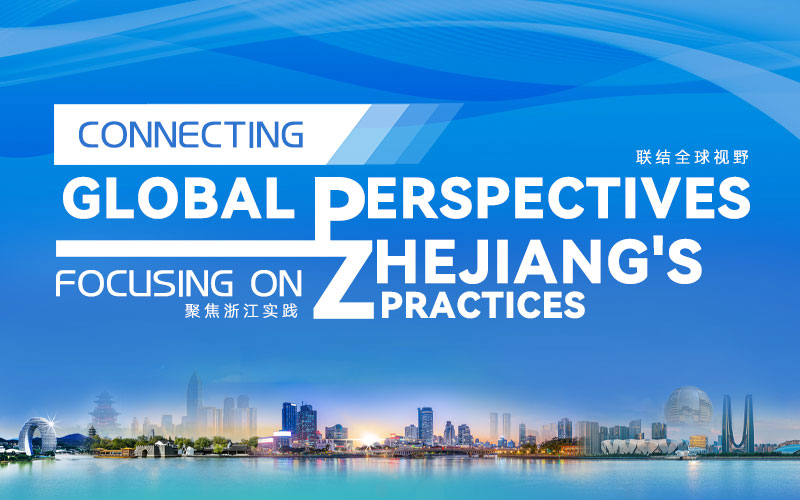Decoding the Common Prosperity: Enriching people's spiritual lives
Common prosperity is one of the most important concepts guiding China's policymaking. But the common prosperity plan is not merely about making people's wallets bulge, but also about enriching their spiritual lives.
In Weizhong Village, which sits in the northern part of Zhejiang Province, efforts are being made to meet locals' spiritual demand.
Seventy-year-old Qu Chiping regularly comes to Weizhong Village to perform Yue Opera for locals. She started to learn opera at a special university for the elderly after she retired.
"We love to sing, dance and play, so we come here. Local residents welcome us because every time we come here, there is a large audience. Yue Opera uses the local Zhejiang dialect, so people can understand it and sing it," said Qu.
The village has regularly invited local performers or groups from other areas to perform for residents. Ticket prices are affordable – about five yuan (less than $1) each. That encourages many residents to come.
"We can communicate with others here. There is no such chance at home. Spending a little money is not a big deal because I feel good," said 81-year-old local resident Li Yongsheng.
Lei Suzhen also comes to the cultural venue regularly. "My kid is here and I work here. Life is stable. So I think letting my child to know more about local culture is good for her," said Lei.
Qu performs in a three-story cultural venue in Weizhong Village. The building also has exercise equipment, and even a library. The venue was opened in 2014, and since then, the village has done everything it could to attract residents to come more often.
In 2015, for example, the village launched a "cultural credit banking" mechanism. Whenever residents go to the gym or rent a table tennis table, they can get points. And the points can be redeemed for prizes.
Weizhong Village is the first in Jiashan County to use this innovative scheme. The amount of money the village uses to purchase prizes has been increasing each year.
"The value of the prizes we gave out to residents was 5,000 yuan in 2015. But the amount reached more than 20,000 yuan as of the end of this July," said Wang Bin, the operation head of the cultural venue in Weizhong Village.
In an article published in October 2021, Chinese President Xi Jinping said China should strengthen education in patriotism, collectivism and socialism. More efforts should also be put into the cultural sector in order to satisfy people's diverse cultural demands, he said.
Weizhong Village belongs to the prefecture-level city of Jiaxing, which includes around 1,200 villages. Each village has been encouraged to build a cultural venue.
Weizhong, home to some 30,000 people, is the largest village in the northern part of Zhejiang. Over 80 percent of the residents are immigrants from other cities. There are also 32 members of minority groups living there.
Zhao Na, who is in charge of cultural promotion at Weizhong Village, said it needed a cultural venue.
"In such a complicated and special village, we need a cultural venue for local residents' mental and cultural needs, in order to make the village peaceful and harmonious," said Zhao.
Li Jun, mayor of Jiaxing, said the city has used innovative methods to boost cultural development, especially in rural areas.
"Innovation can be more effective and get more people involved. We have put more efforts into rural areas, strengthening the establishment of grassroots cultural development and providing more activities in villages to improve people's cultural literacy," said Li.
What's happening in Jiaxing is an example of what Zhejiang has done in the cultural sector.
And the province's cultural landscape is expected to be further expanded. It aims to increase its number of cultural facilities so that all residents can reach one within 15 minutes. The so-called "15-minute cultural life circle" is expected to cover the whole province by 2025.


 Zhejiang Resilient in Global Markets
Zhejiang Resilient in Global Markets Connecting Global Perspectives, Focusing on Zhejiang's Practices
Connecting Global Perspectives, Focusing on Zhejiang's Practices Shaoxing Showdowns
Shaoxing Showdowns